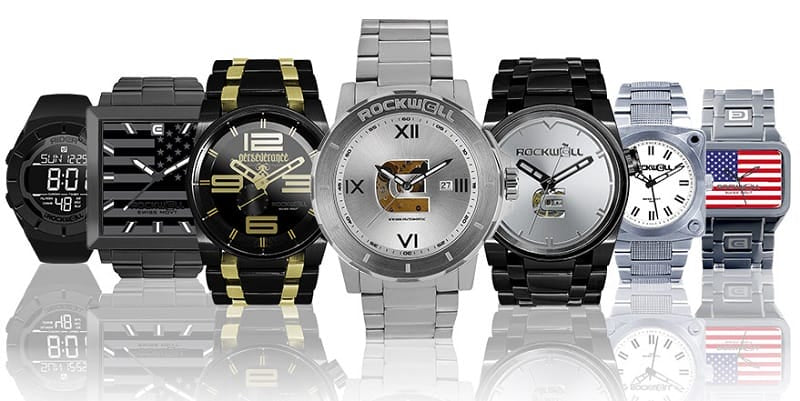In the world of luxury timepieces, Swiss watches have risen to the top as symbols of expert craftsmanship, classic elegance, and unrivaled precision. But what is it that makes these coveted accessories so priceless? And speaking of price, are they really worth the splurge?
In this article, we’ll take an undercover look behind the enigma of Swiss luxury watches and discover the unique features that give these incredible pieces their timeless allure.
What Makes a Watch a Swiss Watch?
The standards for Swiss watches have always been rigorous. The name “Swiss watch” arose during the 19th century in order to specify that a watch met each requirement of Swiss horology, as set by the Swiss Federal Council. However, when lower-end brands began taking shortcuts, it was time to crack down. In January 2017, new, stricter regulations were adopted so that only top-quality timepieces qualify as Swiss watches.
Prior to 2017, the regulations stated that the movement of the watch had to be cased in Switzerland, and 50% or more of the movement’s components had to be Swiss. In addition, the manufacturer had to undergo a final inspection in Switzerland.
Since 2017, standards require the watch’s movement and technical development to be completed in Switzerland. 60% or more of the production costs must originate from Switzerland, 60% or more of the movement production must also be done there, and at least 50% of the movement pieces must be Swiss.
These tough new standards allow watch enthusiasts to have more peace of mind when choosing an authentic Swiss watch. However, you’ll still find many quality timepieces that are manufactured elsewhere, such as in the US, but still feature Swiss components. These are generally referred to as Swiss parts watches.
How Swiss Watches Rose to the Top?
During the 17th century, Swiss clockmakers were hard at work crafting a smaller mechanical movement than those that ran bulky pocket watches. By the 18th century, brands such as Patek Philippe and Audemars Piguet were making a name for Swiss watches through their unmatched craftsmanship and innovation. They never considered their work complete, but instead, continued to head back to the drawing board to create a movement better than the last. This persistence led to many mechanics that are still used today, such as self-winding movements.
When the Quartz Crisis hit in the 1970s, people started to wonder if the Swiss movement would make it. Quartz-powered watches were far cheaper, faster, and easier to produce than the carefully crafted mechanics of Swiss watches. However, watchmakers in Switzerland held fast to the tradition and quality that cloaked their pieces, even though quartz watches had taken the market by storm.
Once the allure of the new kid on the block wore off and the dust began to settle, it was clear that Swiss watches were no longer the norm. Instead, they were luxury timepieces. They became a symbol of tradition and a collector’s item to true watch aficionados, and continue to remain the most sought after of classic movement watches.
Why are Swiss Watches Often More Expensive?
-
They feature new, innovative movements.
Watchmakers who produce Swiss made watches and movements continue to hone their craft and are always seeking ways to improve the movements. You can be sure that your new Swiss watch features some of the latest and greatest mechanics.
-
They take longer to produce.
Swiss made watches are crafted with precision and attention to the tiniest of details. They can’t be popped out in bulk straight from the conveyor belt. Instead, a single Swiss watch can take months to manufacture, creating quite the demand.
-
They’re made with high quality materials.
Swiss watches are crafted from some of the finest materials, both inside and out. But these pricier components aren’t just for show, they’ve been carefully sourced with the intention of ensuring the accuracy and durability of the watch.
The Benefits of Owning a Swiss Watch
-
They capture the history of the past and ingenuity of the future.
Swiss made watches and movements fuse their unique history with ever-evolving mechanics, making them a truly timeless treasure.
-
Swiss watches are built to last.
Because Swiss watches abide by strict regulations and are crafted with quality movements and materials, you can be sure your Swiss watch will be ticking for years to come.
-
Swiss watches have a well-earned reputation, and invoke class and professionalism.
The strict regulations that hold Swiss watches to a higher standard allow these watches to offer unmatched quality and reliability. On top of this, these accessories are sleek. They’re classic. They’ve made a name for themselves that evokes elegance, style, and sophistication.
Are you in the market for a luxury watch? Look for pieces that feature the magnificence and reliability of Swiss mastery. Thanks to their timeless style, quality materials, and ground-breaking mechanics, Swiss watches are an investment that won’t disappoint. They’re not just a time-telling tool, they’re a statement-making, eye-catching, conversation-starting masterpiece.
Video
Infographic
Swiss watches are known for expert craftsmanship, classic elegance, and unrivaled precision. Explore the unique features that give these timepieces their timeless allure in this infographic.

